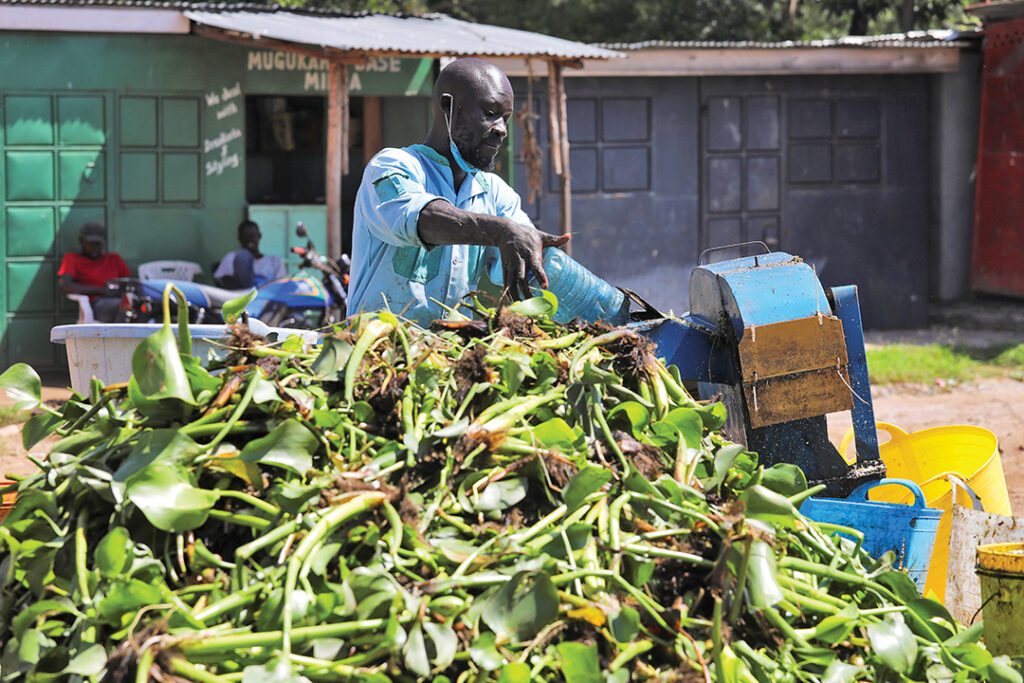REUTERS
A project in Kenya is using biogas technology to tackle two major pollution problems with one device: a machine that converts waste such as invasive water hyacinth into cleaner cooking fuel.
Biogas International, a Kenyan energy technology company, is partnering on the project with drugmaker AstraZeneca and the Institute for Sustainability Leadership at the University of Cambridge in the United Kingdom.
The project so far has provided 50 “digesters” to homes in the city of Kisumu in western Kenya, enabling families to switch from wood or charcoal, both of which are hazardous, time-consuming cooking methods.
Some of the families were given a gas stove as part of the project to replace their jiko, a portable stove that uses charcoal. Many of the digesters also were given out for free, with the rest subsidized by the company.
The machines run on waste such as ground up water hyacinth, which has carpeted large parts of Lake Victoria, a freshwater lake between Kenya, Tanzania and Uganda. The plant harms aquatic life, including fish, and helps bacteria and mosquitoes flourish, posing health risks to local communities.
The digesters designed by Biogas International use 2 to 3 kilograms of water hyacinth scraped from the lake to power a cooker that can make a meal of maize and beans in about four hours.
“Water hyacinth is a blessing in disguise,” said Biogas International CEO Dominic Kahumbu.
But at a cost of $650, the digesters are not affordable for most families in the city, he acknowledged. Although the technology is scalable, he said, the high cost of producing each digester makes turning a profit unlikely for at least another five years. He said the company needs new capital investment to produce more digesters.

